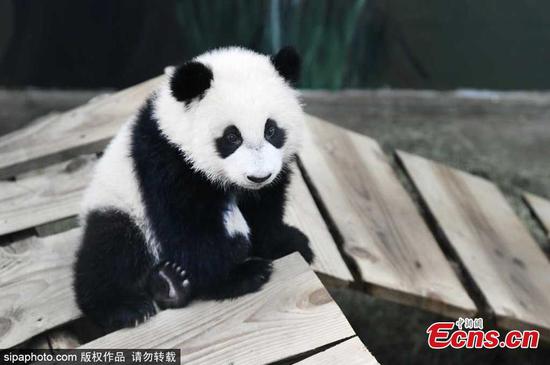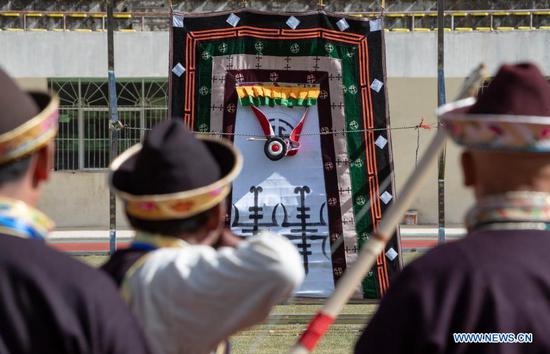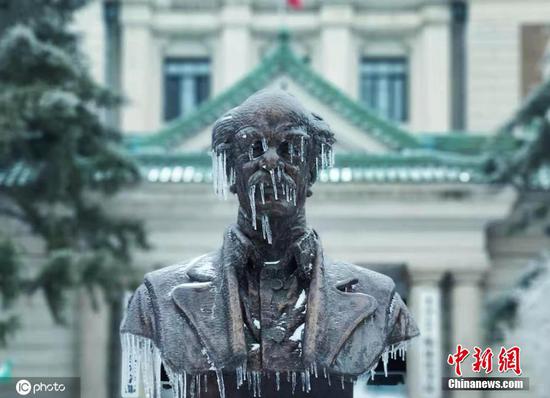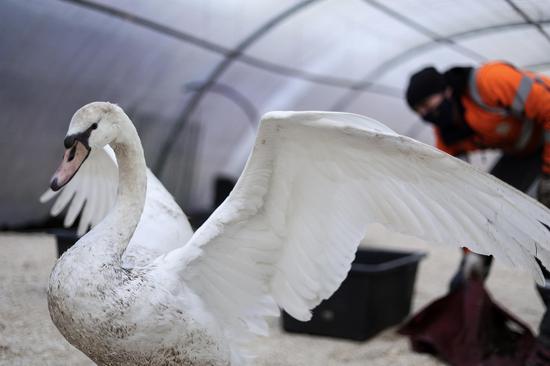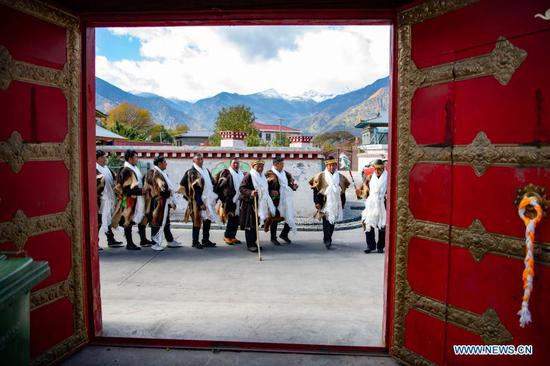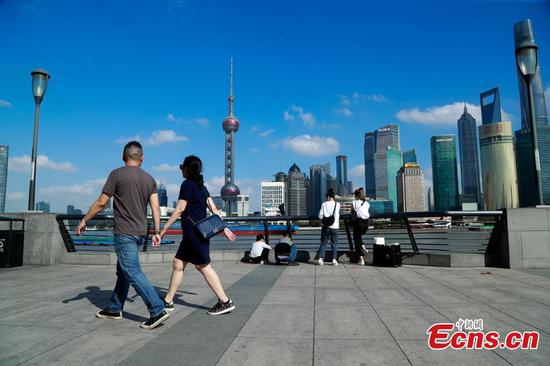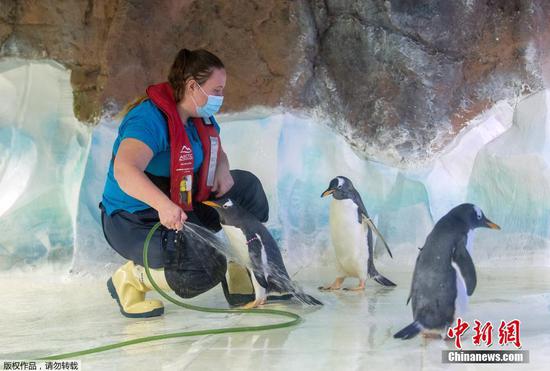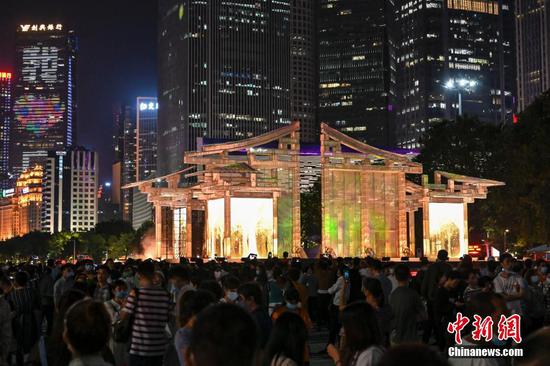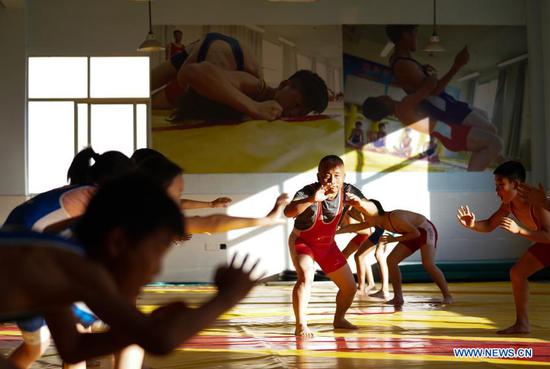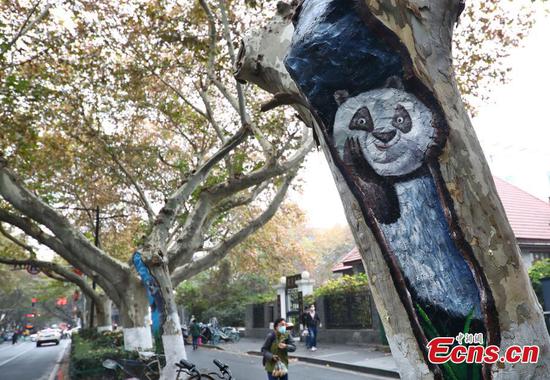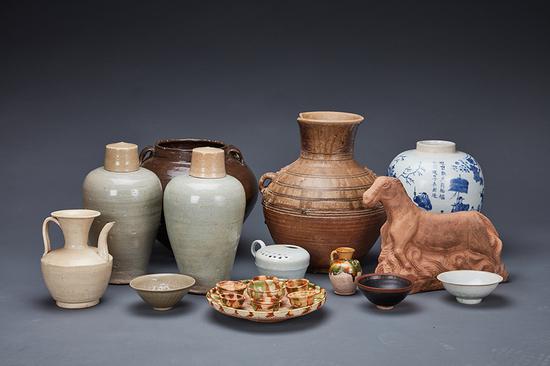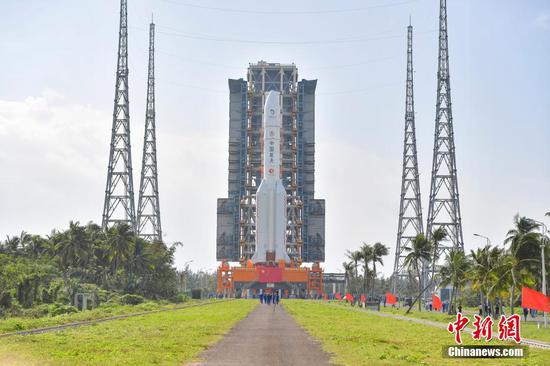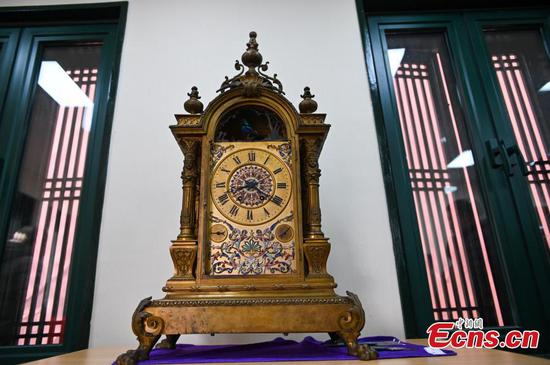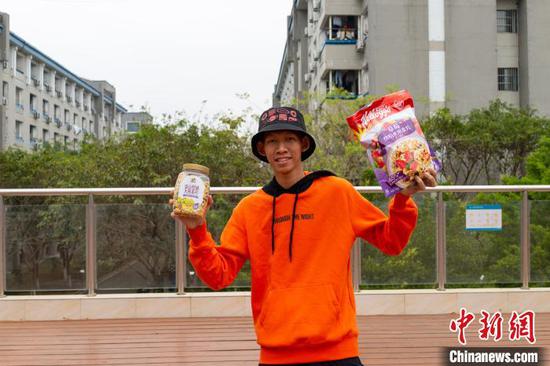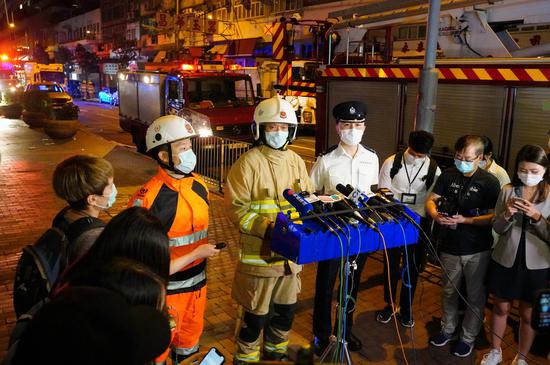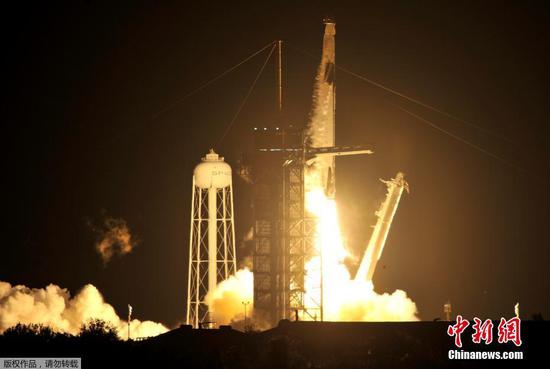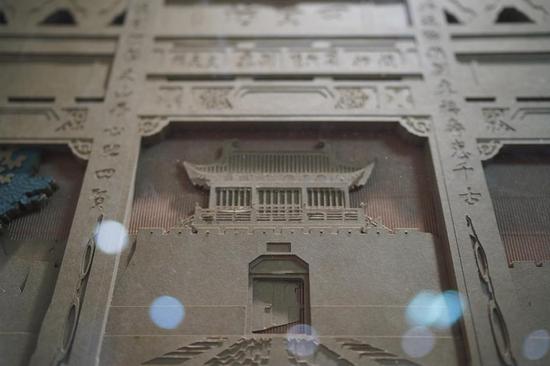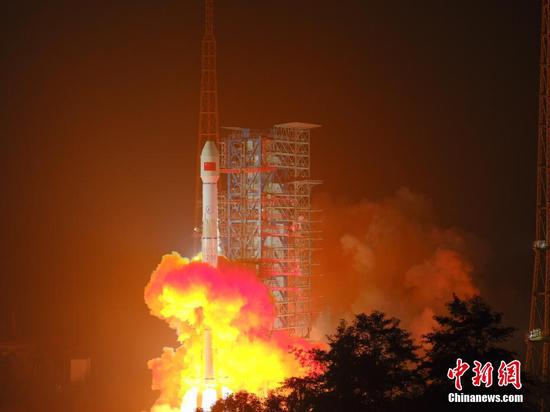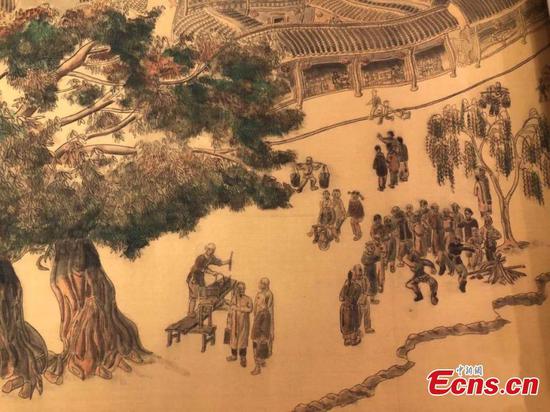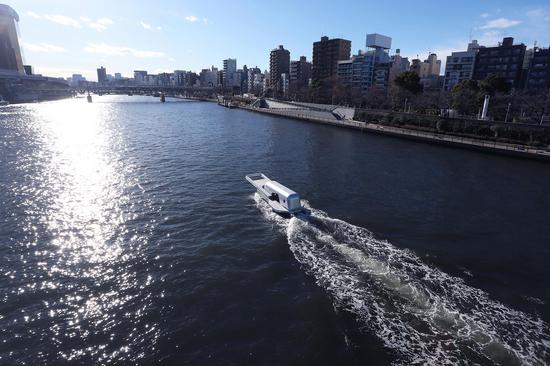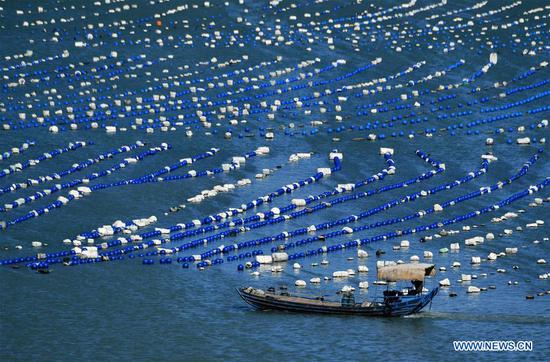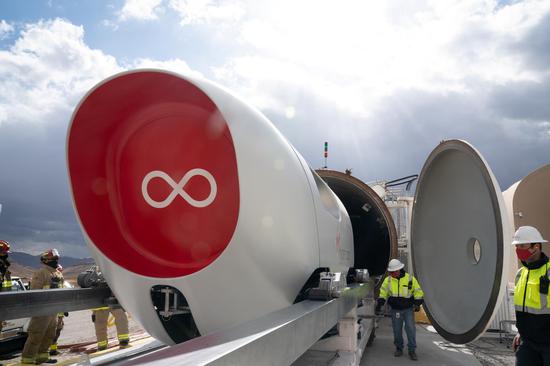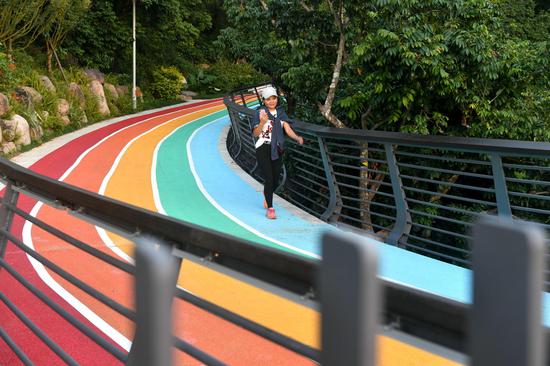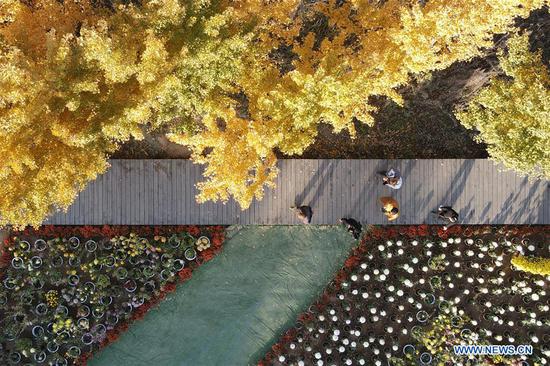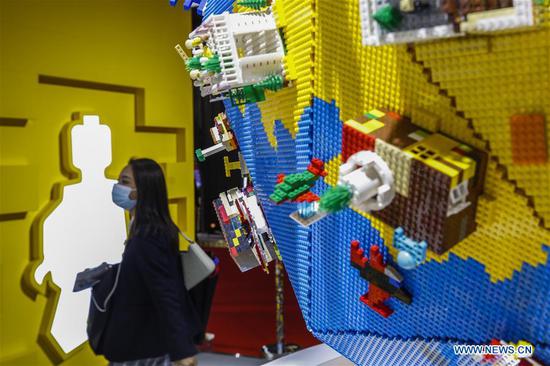Chinese President Xi Jinping delivered a speech titled "Working Together for an Asia-Pacific Community with a Shared Future" at the 27th APEC Economic Leaders' Meeting on Friday in Beijing via video link.
Please see the attachment for the translation of the full text of the speech.
Full text of Chinese President Xi Jinping's remarks at the 27th APEC Economic Leaders' Meeting
Working Together for an Asia-Pacific Community with
A Shared Future
Remarks by H.E. Xi Jinping
President of the People’s Republic of China
At the 27th APEC Economic Leaders’ Meeting
Beijing, 20 November 2020
The Right Honorable Prime Minister Tan Sri Muhyiddin Yassin,
Dear Colleagues,
It gives me great pleasure to join you via video link. I wish to thank Prime Minister Muhyiddin Yassin and the Malaysian government for hosting the meeting.
The past 30-plus years since the inception of APEC has seen rapid evolution of the international landscape and profound transformation of global governance. It has also witnessed a sea change in the Asia-Pacific region.
Over the past three decades and more, APEC cooperation has kept deepening and made substantial progress on many fronts. Guided by the Bogor Goals, we have steadily enhanced regional economic integration. We have advanced trade and investment liberalization and facilitation in tandem with economic and technical cooperation, with a view to realizing mutual complementarity and balanced development of the “two wheels” of APEC cooperation. We have advocated open regionalism and developed an APEC approach of voluntarism, consensus-building, flexibility, pragmatism and incremental progress. Over the years, the Asia-Pacific has weathered two financial crises and lifted over one billion people out of poverty. It has become a leading and most dynamic powerhouse of the global economy, playing an active role in building an open world economy, upholding the multilateral trading system, and spearheading economic globalization.
Three decades on, both the world and the Asia-Pacific are experiencing profound changes, a process further accelerated by COVID-19. The world economy is in the doldrums. Economic globalization is encountering headwinds. Unilateralism and protectionism are on the rise. Balancing equity and efficiency, growth and distribution, and technology and employment is getting more difficult. The wealth gap remains a common sight. The global governance system faces new challenges. For the first time in decades, the Asia-Pacific as a whole registered negative economic growth. Protecting people’s health and reviving the economy are two formidable tasks we have to take on. Where should Asia-Pacific cooperation be heading? The answer bears on the development of our region, the well-being of our people, and the future of the world at large.
One priority on this year’s APEC agenda is to unveil the post-2020 vision, a pathway toward our goal of building an Asia-Pacific community. This should be taken as a new starting point for us to begin another phase in Asia-Pacific cooperation, sustain the strong momentum of development in our region, and embrace a future of shared prosperity. Together, we can build an Asia-Pacific community with a shared future featuring openness and inclusiveness, innovation-driven growth, greater connectivity, and mutually beneficial cooperation.
First, we need to stay open and inclusive. The world economy is like the Pacific Ocean around us — It admits water from various rivers, and connects different parts of the world. As such, it has acquired a vast magnitude and enormous vitality. The approach of pursuing cooperation as equals and resolving differences with mutual respect is what essentially makes economic development and prosperity in the Asia-Pacific possible. Throughout the years, APEC has committed itself to deepening regional economic integration and made significant progress in implementing the Bogor Goals. It has also played an important role in steering the evolution of the multilateral trading system. Yet it must be noted that free and open trade and investment cannot be achieved overnight. It is important that the Asia-Pacific should remain the bellwether in safeguarding peace and stability, upholding multilateralism, and fostering an open world economy. We must stay as determined as ever to support the multilateral trading system with the World Trade Organization at its core, promote free and open trade and investment, and make economic globalization more open, inclusive, balanced and beneficial to all. Continued efforts are needed to press ahead with regional economic integration for the early realization of a Free Trade Area of the Asia-Pacific (FTAAP). China welcomes the signing of the Regional Comprehensive Economic Partnership (RCEP), and will favorably consider joining the Comprehensive and Progressive Agreement for Trans-Pacific Partnership (CPTPP).
As we continue to work on free and open trade, we should pay no less attention to economic and technical cooperation. We need to further implement the APEC Strategy for Strengthening Quality Growth and the Action Agenda on Advancing Inclusion, and accommodate the concerns of developing members. We need to address in particular the special needs of women and some other communities, and support micro, small and medium-sized enterprises (MSMEs). Such efforts will contribute to inclusive and sustainable growth. China will host a seminar on advancing economic inclusion through trade and investment to look for suggestions on how trade and investment policies could deliver broader benefits to people. China looks forward to working with all parties to follow up on those suggestions.
Second, we need to pursue innovation-driven growth. The digital economy represents the future direction of global development, while innovation has fueled the economic takeoff of the Asia-Pacific. We need to proactively seize the opportunities of our times and fully harness our region’s abundant human resources, solid technological foundation, and enormous market potential to gain a new competitive edge and open up new possibilities for the betterment of our people’s lives. The APEC Internet and Digital Economy Roadmap should be implemented in full to spur the dissemination and application of new technologies, strengthen digital infrastructure, and close the digital divide. We need to improve economic governance and foster an open, fair, equitable and non-discriminatory environment for businesses. This year, China has conducted an APEC case study on smart cities, which we hope will contribute to the formulation of guidelines on smart cities and offer an example for innovative urban development across the region. China calls for experience sharing among APEC members on how to control COVID-19 and achieve economic recovery with digital technologies. China also calls for improving the doing-digital-business environment, energizing market players, and tapping the potential of the digital economy. Such efforts will bring fresh impetus to economic recovery in our region. Next year, China will host a workshop on digital technology-enabled poverty alleviation, in a bid to unleash the role of digital technologies in eradicating poverty in our region.
Third, we need to enhance connectivity. Connectivity is a vital basis of regional economic integration and an essential underpinning for interconnected development of the world. The ongoing pandemic further highlights the importance of connectivity. We need to continue to implement the APEC Connectivity Blueprint to facilitate the smooth, safe and orderly flow of people, goods, capital and data and achieve a seamlessly connected Asia-Pacific. China has opened “fast tracks” with fellow APEC members like Indonesia, the Republic of Korea, and Singapore to facilitate the movement of people during the pandemic, and more will be done to complete a network of such arrangements. In this connection, it is important to promote the mutual recognition of the COVID-related health information of international travelers. China is ready to take active and well-thought-out steps with all other parties to set up “green lanes”, which will help make customs clearance more efficient, unclog bottlenecks, and reconnect disrupted links. We may also promote the creation of international cooperation platforms on industrial and supply chains to ensure the safe and smooth operation of industrial and supply chains in our region and beyond. We need to pursue greater complementarity among the development plans and connectivity initiatives of different parties to forge a bigger synergy. On China’s part, we hope to work with all partners in high-quality Belt and Road cooperation, which we believe will set up a bigger platform for connectivity in the Asia-Pacific and inject a stronger impetus into the economy of our region and the wider world.
Fourth, we need to promote mutually beneficial cooperation. The Asia-Pacific economies have a high degree of mutual complementarity and enjoy deeply intertwined interests. Our economic cooperation has never been a zero-sum political game in which one gains at the expense of the other. Rather, our cooperation has provided us with a development platform to ensure what we each do can be mutually reinforcing and beneficial to all. There is a Malay proverb that goes, “bukit sama didaki, lurah sama dituruni”, which means to climb the hill together and go down the ravine together. It aptly captures the spirit of our Asia-Pacific family. COVID-19 serves as another reminder that only solidarity and cooperation can enable us to prevail over challenges. We need to deepen the Asia-Pacific partnership featuring mutual trust, inclusiveness and mutually beneficial cooperation and follow the approach of extensive consultation, joint contribution and shared benefits. We need to keep raising the level and scope of our regional cooperation to achieve shared prosperity for the whole region. It is important that we advance practical cooperation on the basis of consensus, properly manage differences and disagreements, and keep Asia-Pacific cooperation in the right direction to ensure APEC’s sound development in the long run.
At this very moment, fighting COVID-19 is the most pressing task for us all. We must step up research and development of vaccines and related exchanges, and work harder to make the vaccines a global public good to improve their accessibility and affordability in developing countries. For that purpose, China has joined the COVID-19 Vaccine Global Access Facility (COVAX). We support APEC in strengthening policy exchanges and capacity building in the areas of public health and MSMEs. China has made a telemedicine initiative to give people in poor and remote areas access to timely and quality medical services. We hope these efforts will contribute to anti-epidemic cooperation and economic recovery.
China highly values the role of APEC. We will continue to support the organization’s development, and with our root struck deep in the Asia-Pacific, we will continue to serve its development and prosperity.
Colleagues,
This year, the Chinese people have exerted strenuous efforts to score a major strategic achievement in controlling COVID-19. Working with other countries in these trying times, China has contributed its wisdom and resources to the global fight against the coronavirus. It has shared with various parties full experience on containment and treatment and done its best to assist other countries and international organizations. All these are among the concrete actions we have taken toward building a global community of health for all. At the same time, we have coordinated COVID-19 control with economic and social development at home, and scaled up macro policy response so that the Chinese economy could stabilize, pick up, and steadily upgrade. In the first three quarters of this year, China’s GDP grew by 0.7 percent, on course to register positive growth for the whole year. It is also worth noting that by the end of this year, we will have lifted out of poverty all rural residents living below the current poverty line.
The recently concluded Fifth Plenary Session of the 19th CPC Central Committee adopted recommendations for formulating China’s 14th five-year plan. The plenum underscored that China will finish building a moderately prosperous society in all respects within the set time frame, and will embark on a new journey next year toward fully building a modern socialist country. Based on a scientific analysis of the new stage of China’s development, we will stay committed to the new development philosophy, and actively foster a new development paradigm with domestic circulation as the mainstay and domestic and international circulations reinforcing each other. China will build a new system of open economy of higher standards and create a more attractive investment and business environment.
To conclude, China is ready to work with all other parties in the Asia-Pacific to build and share a brighter future of peace and prosperity for our region and get ever closer to the goal of a community with a shard future for mankind.
I thank you all.









